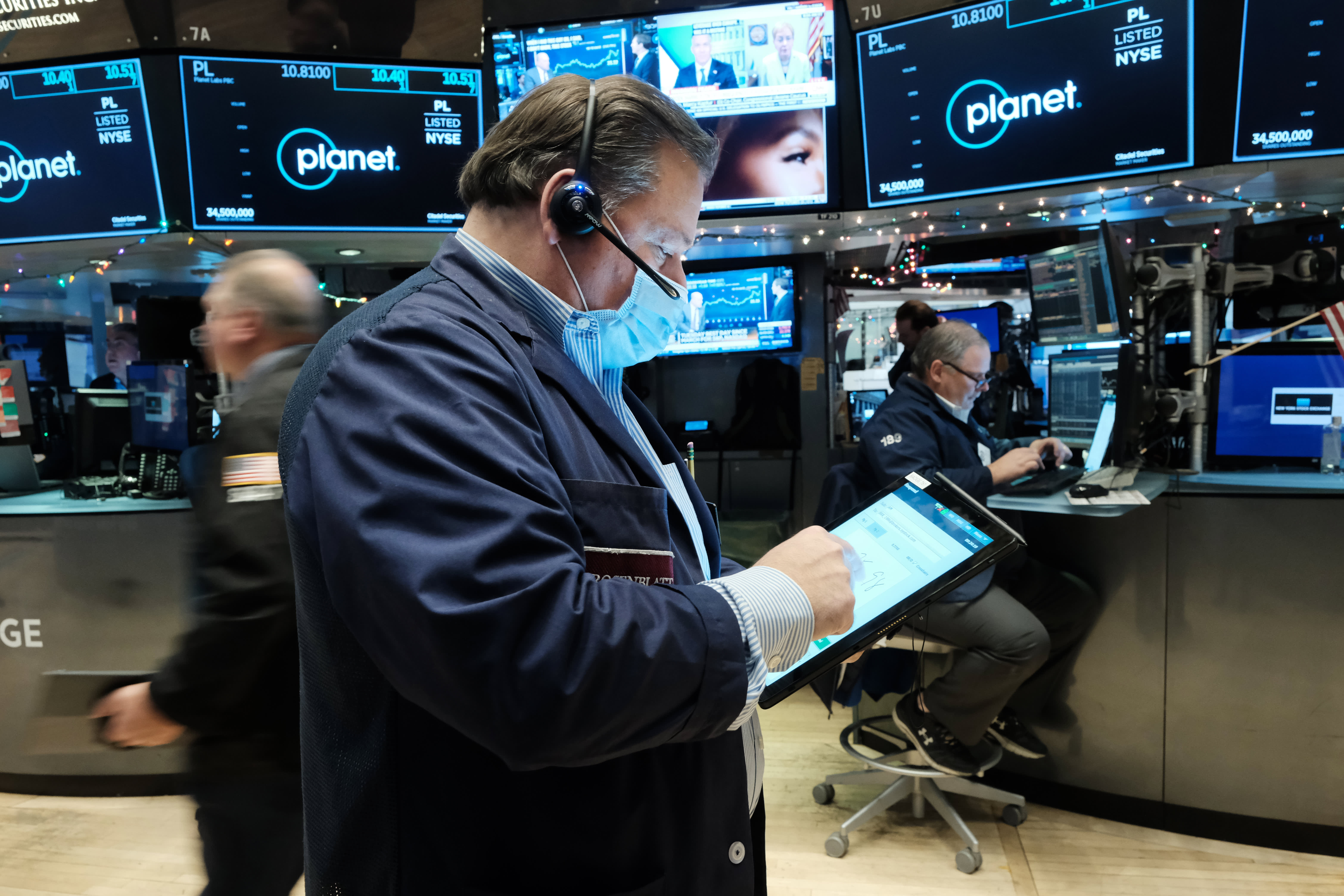
Traders work on the floor of the New York Stock Exchange (NYSE) on December 08, 2021 in New York City.
Spencer Platt | Getty Images
Investors should short government bonds with higher interest rates now being “inevitable” around the world, a strategist has advised.
Speaking to CNBC’s “Squawk Box Europe” on Monday, David Roche, president and global strategist at Independent Strategy, shared his fixed income outlook amid an uncertain economic climate.
“In terms of bonds alone, my stance is that I would be short the whole lot of them,” he said. “Short [German] bunds, which have now got a positive yield, short BTPs in Italy and short U.S. Treasurys … I would say I would most certainly be short [U.K.] gilts too because we’re going to see quite a phenomenal inflationary spiral in the U.K.”
European sovereign debt yields ticked higher across the board on Monday morning, with the yield on Germany’s two-year government bond rising by 3.5 basis points to -0.215% — its highest since September 2015. Yields on German five-year bonds also briefly rose to their highest since 2018. Last month, German 10-year bund yields rose above zero for the first time in almost three years.
Meanwhile, Italian 10-year yields rose to 1.776% on Monday, the highest they’ve been since May 2020, and yields on Italian two-year bonds were at their highest since mid-2020. In the U.S., the yield on the 10-year Treasury note fell to around 1.9014% by 10:30 a.m. London time after a strong surge in the previous session.
Yields move inversely to bond prices, and “shorting” an asset like a bond is where traders place bets believing that their value will fall.
The moves in the European bond market came after hawkish comments from Klaas Knot, president of the Dutch central bank and a member of the European Central Bank’s Governing Council, on Sunday. Speaking to Dutch TV show “Buitenhof,” Knot said he expected the ECB to raise interest rates by the end of this year, with a second rate hike likely to follow shortly afterward.
Last week, when the ECB announced it was keeping interest rates unchanged across the euro area, ECB President Christine Lagarde did not reinforce her previous guidance that a rate hike was “very unlikely” in 2022, telling a press conference that the economic situation “has indeed changed.”
The ECB has so far resisted pressure to raise rates at a time of unprecedented inflation, with the most recent reading hitting a record 5.1% last month, and the central bank behind its British and American counterparts when it comes to its normalization path.
However, Roche told CNBC Monday that it was inevitable markets would see rate rises from “pretty much all the major central banks during the course of this year,” speculating that “we’re not even halfway” to where interest rates are heading.
Roche also warned that if Russia invades Ukraine, the outlook for the global economy and markets would be “radically altered.” On Sunday, White House national security advisor Jake Sullivan warned that an invasion could come “any day now.”




